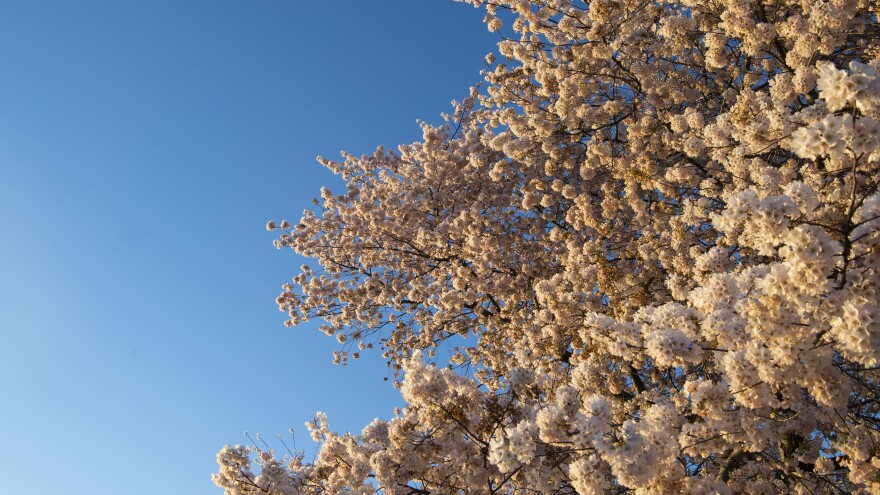Canopies of pink and white flowers are blanketing Washington, D.C., after the city's cherry trees hit full bloom last week.
D.C.'s first cherry trees were a gift to the United States from Japan in 1912. In Kyoto, Japan, the cherry trees' peak bloom this year was the earliest on record in 1,200 years. This follows a pattern of earlier and earlier blooms since the 1800s. This year's blossoms in D.C. peaked several days ahead of the 30-year average, according to The Washington Post.
Scientists warn that the blooms are just one sign of the greater looming climate crisis; earlier blooms can mean warmer springtime temperatures.
Cherry trees need a full month of chilly weather below 41 degrees to properly blossom when it gets warmer, according to Naoko Abe, author of The Sakura Obsession. If they don't get that chilly weather, they blossom later because "they can't wake up properly," Abe says.

"The impact from climate change is indisputable, I think," Abe tells NPR's All Things Considered. "However, the decisive factors for the cherry blossoms is the winter temperature."
And while early blooms are caused by warm springs, delayed blooms could also be the result of warming winters — which is also troubling. Southern Japan has already seen some of these delayed blooms.
Abe tells NPR that if winter temperatures continue to rise, the delays may grow to the point where trees don't blossom at all.
The trees planted in D.C. are Yoshino cherry trees, a variety that makes up about 70% of all cherry trees in Japan. They're easy to propagate and can start to blossom after only five years.
However, Yoshinos are very susceptible to temperature change and disease. Abe warns that if we do not start to diversify cherry tree varieties, in a century we might not have cherry blossoms at any time of year.
Ever since Yoshinos garnered popularity in Japan in the 19th century, other cherry species were forgotten and went extinct.
"We have to prevent that, and we can prevent that," she says. "We have to start thinking differently and start thinking that the Yoshino cherries are not the only cherries."
Elena Burnett and Patrick Jarenwattananon produced and edited the audio story. Digital News intern Farah Eltohamy produced it for the Web.
Copyright 2021 NPR. To see more, visit https://www.npr.org.




